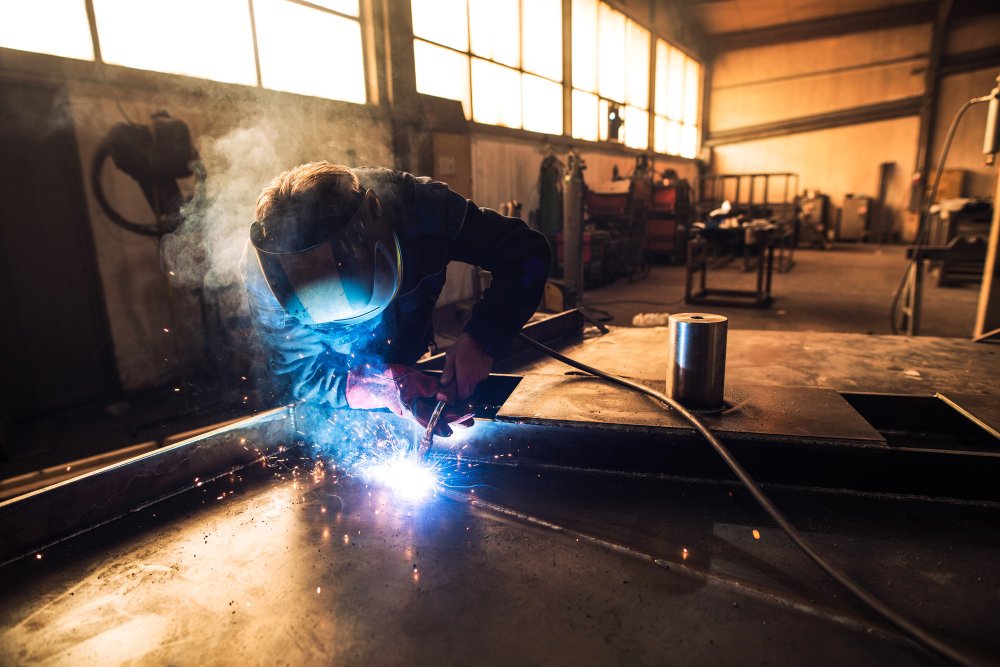How Do Fabrication Engineers Impact Industry Advancements?
Every complex structure, from towering bridges to complex medical devices, starts with a blueprint. But it takes a special breed of engineers to transform those two-dimensional designs into tangible reality. They are the problem solvers, the innovators, and the masters of material manipulation. Let's learn about the world of fabrication engineers! See their multifaceted roles, technical expertise, and the far-reaching impact they have on industries and technological advancements.
Key Duties of Fabrication Engineers - A Multifaceted Role
Fabrication engineers are the backbone of manufacturing, translating designs into tangible products. Here's an overview of their core responsibilities:
Decoding Designs: Fabrication engineers possess a unique skillset, deciphering complex engineering drawings and blueprints. They transform these technical plans into a step-by-step guide for the fabrication process.
Material Masters: Selecting the right materials is crucial. Fabrication engineers consider various factors, including strength, durability, cost, and compatibility, to ensure the final product meets the desired specifications.
Crafting Process Plans: They meticulously map out the entire fabrication journey, specifying each step, tool, machine, and technique required. Precision, tolerances, and production efficiency are all factored into this detailed plan.
Welding Wizards: Fabrication engineers are experts in various welding and joining methods. They select the optimal technique, whether it's arc welding, MIG, TIG, or brazing, to ensure strong and reliable connections.
Machinery Maestros: Operating fabrication machinery is second nature to these engineers. They oversee the calibration and maintenance of CNC machines, laser cutters, press brakes, and other equipment for peak performance.
Quality Champions: Upholding rigorous quality standards is non-negotiable. Fabrication engineers inspect and test components for accuracy, structural integrity, and adherence to specifications, rectifying any flaws.
Safety Guardians: Ensuring a safe work environment is paramount. Fabrication engineers implement and enforce safety protocols throughout the fabrication process to prevent accidents and injuries.
Cost Controllers: They keep a close watch on project budgets, optimizing resource allocation to achieve cost-efficiency without compromising quality.
Project Leaders: Fabrication engineers often take charge of project management, coordinating teams, timelines, and resources to ensure timely and successful project completion.
This multifaceted role demands technical expertise, meticulous planning, and a commitment to safety and quality. Fabrication engineers are the unsung heroes behind countless manufactured products we rely on.
Expertise Arsenal of Fabrication Engineers
Fabrication engineers possess a diverse skillset essential for transforming designs into reality:
Welding Mastery: Deep understanding of various welding techniques and parameters, enabling them to create strong and reliable joints.
Material Gurus: In-depth knowledge of materials and their properties, guiding them in selecting the most suitable materials for specific applications.
Proficiency in CAD/CAM: Proficiency in CAD/CAM software, facilitating efficient design and programming of fabrication processes.
Machining Acumen: Expertise in machining processes and tools, allowing them to precisely shape and modify materials.
Project Management Pros: Skilled in project planning, scheduling, and resource management to ensure on-time and within-budget project completion.
Quality Assurers: Well-versed in quality control methods and standards, guaranteeing the integrity of products and processes.
Impact of Fabrication Engineers - Shaping Industries and Products
Fabrication engineers are not just builders; they are innovators and problem solvers who significantly contribute to various sectors:
Pioneering Products: Fabrication engineers are at the forefront of developing cutting-edge products, components, and structures that meet evolving industry and client demands.
Cost Optimizers: Their expertise in process and material optimization helps organizations streamline production costs while upholding stringent quality standards.
Safety Advocates: Prioritizing safety, fabrication engineers ensure secure working environments for both fabrication teams and end-users of fabricated products.
Precision & Quality Experts: They play a crucial role in achieving precise and high-quality results in manufacturing and construction, contributing to superior products and infrastructure.
Problem-Solving Maestros: Fabrication engineers excel at identifying and resolving challenges, ensuring smooth and efficient fabrication processes.
Industry Innovators: By embracing new technologies and practices, fabrication engineers drive innovation and advancement in their respective industries.
Pressure Vessels and Fabrication Engineers - Frequently Asked Questions
What Role Do Fabrication Engineers Play in Pressure Vessel Construction?
Fabrication engineers are essential in the pressure vessel industry, overseeing the entire lifecycle from design to maintenance. They act as the bridge between theoretical design and practical construction, ensuring vessels meet safety standards and perform as intended. This involves translating design specifications into detailed manufacturing plans, supervising the fabrication process, and ensuring the final product adheres to quality control measures.
How Do Fabrication Engineers Approach Material Selection for Pressure Vessels?
Material selection is a critical decision made by fabrication engineers, influencing the vessel's safety, longevity, and performance. They must consider factors such as intended use, operating conditions (pressure, temperature), and the corrosive nature of the contained substances. This involves balancing mechanical properties, cost-effectiveness, and compliance with industry standards to ensure the chosen material can withstand the vessel's demanding environment.
Which Welding Techniques Do Fabrication Engineers Employ for Pressure Vessels?
Expert fabrication engineers have a deep understanding of various welding processes and their suitability for pressure vessel construction. They select the most appropriate technique based on factors like material type, thickness, and specific project requirements. Common methods include submerged arc welding (SAW) for high-volume production, gas tungsten arc welding (GTAW) for precision work, and shielded metal arc welding (SMAW) for its versatility.
How Do Fabrication Engineers Guarantee the Safety and Quality of Pressure Vessels?
Quality assurance is a cornerstone of a fabrication engineer's role. They implement a rigorous inspection and testing regime throughout the fabrication process, employing both destructive and non-destructive testing methods. This ensures that the vessel adheres to strict quality standards and complies with safety regulations, minimizing the risk of failure or accidents during operation.
Partner with Choctaw Global for Fabrication Excellence
Choctaw Global's team of expert fabrication engineers possesses the skills and experience to guide your project from concept to completion. With a proven track record in diverse industries, we deliver solutions that meet the highest standards of precision, quality, and safety. Contact us today to discuss your fabrication needs and see how we can help bring your vision to life.

